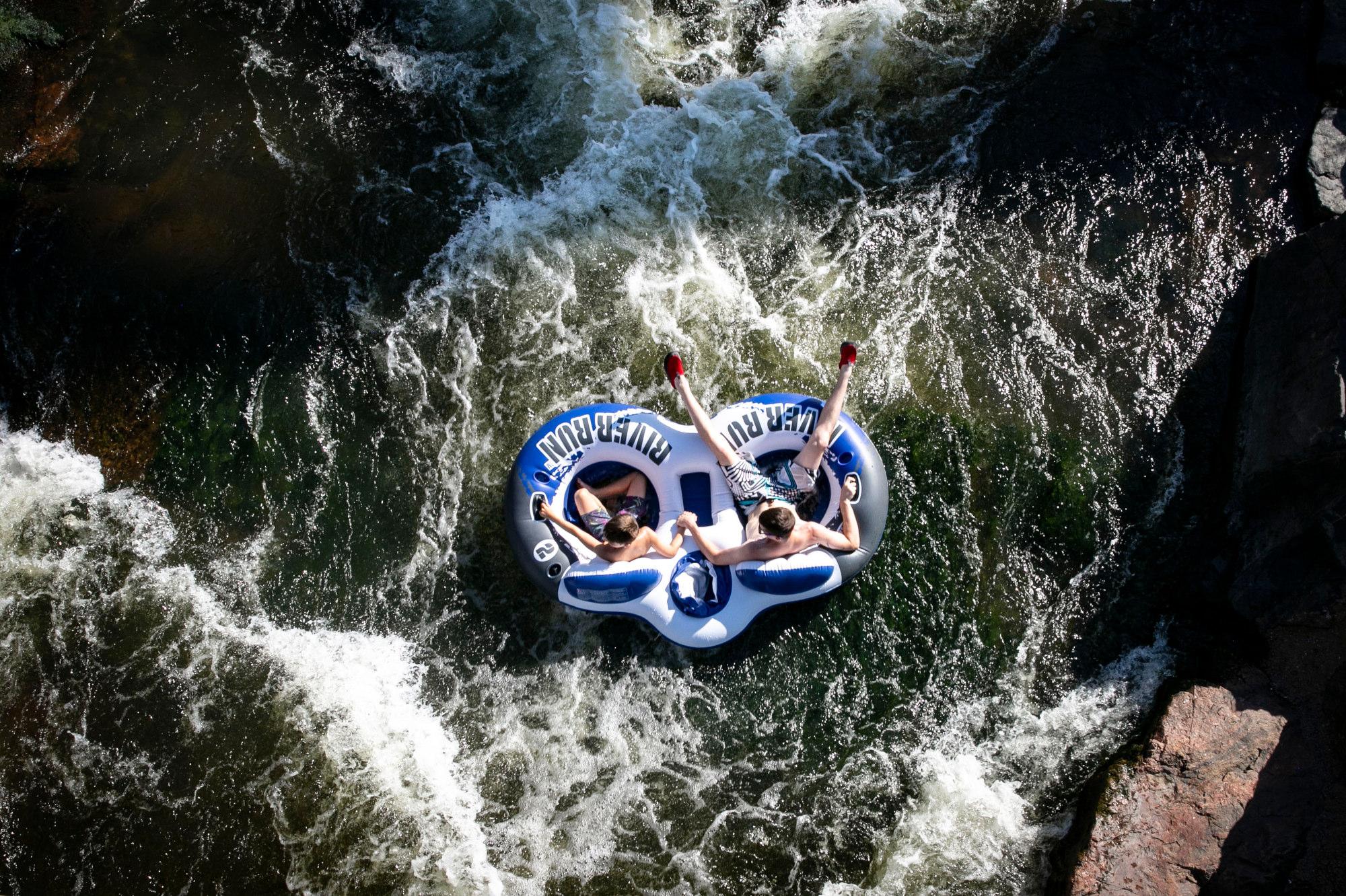
Colorado has hit the peak of the heat wave sweeping across the western United States, with temperatures hitting the upper 90s or triple digits on both sides of the Continental Divide.
Denver hit 101 degrees early in the afternoon Tuesday, breaking the record of 97 degrees for June 15 historically, which occurred in 1952 and 1993, according to the National Weather Service.
The all-time high in Denver was 105 degrees, which has occurred on various dates in the summer months. Throughout the week, Denver will see temperatures 5 to 10 degrees above average.
"June's been getting real hot in Denver. When I moved here in 1989, the record was 105. We had one occurrence of it. It was in August,” said Robert Koopmeiners, a meteorologist with the weather service in Boulder. Granted it's still 105, our all-time record high. But we've had some occurrences of it in June, July and August a number of times now."
In Grand Junction, highs could break the all-time record high of 106 degrees on Tuesday or Wednesday. Grand Junction sat at 102 degrees Tuesday afternoon. The area is also experiencing extreme drought.
“Not good out there for those folks,” Koopmeiners said. “If you're a Gila monster it's OK I guess.”
Cities have warned residents to keep an eye out for symptoms of heat-related illnesses, like heat stroke. According to the Centers for Disease Control and Prevention, “Those who are at highest risk for heat-related illness include people 65 and older, children younger than 2, and people with chronic diseases or mental illness”.
“With heat exhaustion, you might notice muscle cramping. You might get pale or really, really sweat,” Mesa County Public Health spokeswoman Stefany Busch said. “Some fatigue, headaches, things like that. When you see someone or if you are experiencing heat exhaustion, you want to be removed from the heat immediately, give them small sips of water and move to a shaded or air-conditioned place.”
In response to the heat wave, Denver has opened several city locations to the public for use as cooling stations. All currently open recreational centers and some city libraries will have water and air conditioning available.
All people, even the most healthy hiker, are vulnerable to heat-related illnesses. Colorado Parks and Wildlife spokeswoman Bridget Kochel said hikers should be aware of conditions before hitting the trail.
“So our advice is just to know before you go,” Kochel said. “Know what the weather's going to be, know what your skill level is, bring extra water.”
She expects more people to go out and try water sports to cool off and said people should be aware of the possible risks involved.
“If people are going to be out on kayaks or paddleboards to really wear their life vest and to pay attention to the water conditions as well,” she said. “When water temperatures are very cold, it can put your body into shock. So even if the top parts of the water might be warm, it's really just important to understand what's going on underneath.”
Fortunately for Coloradans, the latter half of the week will bring a reprieve, with temperatures dropping to a more comfortable level. Come Friday, there’s a chance of afternoon thunderstorms.









